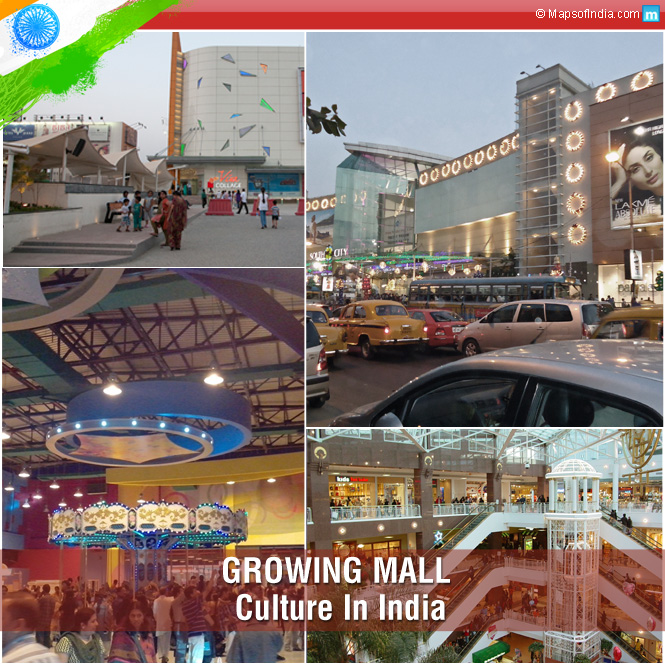India’s retail sector has grown enormously from ‘Haat’, ‘Weekly Bazaars’ to posh, sophisticated and swanky shopping malls. A few years back our mothers used to go to ‘kirana ki dukan’ to buy grocery which now is available in grocery stores. In small towns, cities and even in metros and big cities ‘kirana shops’ still dominate and fulfil the daily needs of a family. Though the dynamic transformation is going on but definitely retail stores and malls have been transforming the retail industry from unorganized to organized. Still a way to go as organized retail sector is just 5% of the total retail sector in India.
Malls have changed shopping experience
Malls are not only a shopping place but a place to rejuvenate, socialize and entertain. In big retail stores you get everything under one roof from branded clothes, grocery, electronics to foot wear. Without a doubt malls have changed the shopping experience of Indians. Doing shopping in the scorching heat of the sun has been replaced by AC shopping. Youth take this as a status symbol. Visiting malls and buying branded products satisfy their thirst for better quality of life. Teenagers do come to show off. Certainly shopping malls are bringing in a new culture in India which is different from the traditional culture as far as shopping is concerned.
India offers an immense market opportunity because of increased income and changed lifestyle of middle class families. In 2001 there were just three malls in India. The number grew to 343 by 2007. As of May 2013, India had a total of 570 operational malls. As per the data from Bangalore-based Asipac Consulting, number of malls in 2013 has doubled since 2008.
There are two main formats of mall:–
-
Malls
-
Family Entertainment Centres.
Family Entertainment Centres generally have amusement section, food court, and retail.
How successful are malls in India?
It has been seen that many a time mall is opened with huge expectations but faced shut down. This includes Full Stop Mall on Palm Beach Road, the Marine Drive of Navi Mumbai, Gold City Mall in Navi Mumbai, Star City Mall in Delhi and many more. Also in many malls 70-80 percent spaces remain vacant. Poor selection of site is one of the major reasons. Experts advise to do a thorough research before opening a mall in any area. Success actually depends upon its location, demographic factors, and spending power of the local population.
Some of the largest malls in India are: Phoenix Market City Mumbai (Mumbai, Maharashtra), Metro Junction Mall (Kalyan, Maharashtra), LuLu International Shopping Mall (Kochi, Kerala), The Great India Place (Noida) and Z Square shopping Mall (Kanpur, Uttar Pradesh).
All in all malls have changed the lifestyle of consumers in India and helped the retail sector to become more organized.




